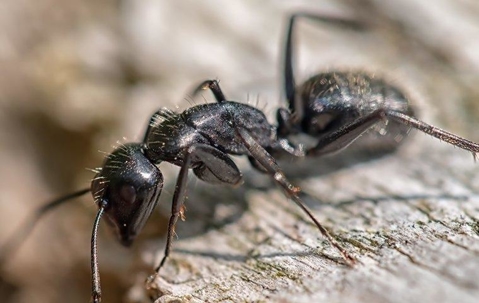Most insects are capable of disaster. This goes for small ones that are considered “ordinary,” too, such as ants. They might ruin your place or personal effects. What’s certain is that they’ll bring germs around that can cause illnesses. Some species are challenging, like carpenter ants, which are harmful to wood. Pavement ants in your house will affect the soil, and both are prevalent in the state. Pest control in New Jersey is the path to relief. You can’t rely on other avenues to get rid of pavement ants naturally or methods for different subtypes because they have significant shortcomings.
If you want to eliminate pavement ants and their counterparts, you must understand their behaviors and risks. This information will help you develop a deterrence plan. These bugs can get past tiny holes, and their colonies are monumental. Use this guide from us at Heritage Pest Control to stay ahead and learn about our ant control solutions.
The Life Cycle Of Common Ants
There are four stages to an ant’s life cycle: egg, larvae, pupae, and adult. Depending on the environmental conditions, it might be two months before all are completed. The last two phases take the longest time.
Carpenter ants are some of the largest in the country, being 0.25 to 0.50 of an inch long. Some are brown or tan, while others are red, reddish-black, yellow, or orange; however, a good number of them are just black. Colony swarmers have wings. These insects shape tunnels and nests in wood, which damages it. Trees, logs, and lumber are particularly appealing to them. Seeing swarmers or mountains of wood shavings notes an infestation. It’s also concerning if you have hollow walls or hear rustling inside foundations.
Pavement ants in New Jersey are just 0.09 to 0.12 of an inch long. Their appendages are light, but their bodies are black or brown. Sidewalks and driveways are their central gathering points, along with decks and patios. When they’re on the ground, they dig into the soil; this will make for a cluttered, muddy yard. If they journey indoors, they’ll concentrate on the kitchen. Encounters with pavement ants can end in painful stings, so be wary of them.
Why Ants In Your House Can Be Dangerous
Though carpenter and pavement ants in New Jersey are perilous in their own ways, remember that all species are problematic. They can contaminate surfaces and food with the bacteria in their saliva and waste, and their skin has microbes on it. Salmonella and E. coli are only two of the conditions they could generate.
Five Simple And Effective Ant Prevention Tips For Your Home
To get rid of pavement ants naturally and their relatives, people will apply things like essential oils and Borax to susceptible areas. Any results from these tactics would be short-lived.
More useful avenues to conquer carpenter and pavement ants in your house are:
- Fix Things Up: Seal openings in foundations and utilities. Repair leaks and moisture malfunctions. Lastly, replace worn sweeps and screens.
- Tidy The Kitchen: Carefully clean your kitchen and dishes. Use secure containers for food and trash storage. Quickly take care of meal messes.
- Handle Trash And Rugs: Remove garbage and vacuum carpeting frequently.
- Create Some Space: Distance wood and plants from the property.
- Avoid Wood And Soil Contact: Don’t let loose wood, like building panes, touch soil.
The Secret To Total Ant Control For Your New Jersey Home
“Do it yourself” ant control solutions and retail insecticides weren't purposed for infestations, and they are also expensive and toxic. We at Heritage Pest Control have safe industrial-grade treatments that are eco-friendly. Call or email us today! Our technicians will eliminate pavement ants and others right away!

